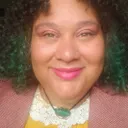Stay in the Loop
BSR publishes on a weekly schedule, with an email newsletter every Wednesday and Thursday morning. There’s no paywall, and subscribing is always free.
Sofiya Ballin’s ‘Revolution’ comes to the MoAR

Black history, specifically in America has often been told through curated lessons that typically glazed over throughout the month of February, aka Black History Month. Their lessons are usually about a few key Black figures who have had a significant impact on America and America’s political culture. Beyond them, and America’s history with Black people are hundreds of thousands of Black people from all over the world who are often neglected in the telling of Black histories, leaving out crucial insight into who we, Black people, are as individuals, families, communities, and cultures and where and what we come from.
When the revolution comes
Told in a thematic series of Black experiences around the world are the untold stories of Black people. The Black History Untold installation is a relevant and revolutionary act of speaking Black truths out loud, making the history of Black experiences accessible to everyone. This year the event’s theme is Revolution.
“The purpose is to showcase the power of a comprehensive Black History education,” shares curator and award-winning storyteller Sofiya Ballin in an interview with BSR. “We touch on women in the Haitian Revolution, Queen Nzinga of Angola, Yaa Asantewaa of Ghana and the recent uprising in Sudan.”
Taking place at the Museum of American Revolution in the middle of Black History Month, we can anticipate vignettes about these and other influential figures told by thirty people who, as Ballin explains, “are everyday people talking about revolutionaries or revolutions that inspired them… Screening a piece that shows the many ways Black people have resisted globally and through the voices of Black people at the Museum of American Revolution feels like revolution itself.”
On being bold
Ballin envisioned this installation to be an impact on Black people, Philadelphia’s residents and visitors of the Museum of American Revolution. “Specifically to Black viewers, I want them to leave knowing that they are part of a long tradition of resistance and to feel pride because there has always been Black people who saw the value of Black lives. There are—were people who believed Black lives were worth fighting for and dying for. To viewers as a whole, I want folks to leave understanding the different forms revolution and resistance can take and also the cost that can come with being bold enough to fight for what you believe in.”
To foster that comprehensive education, Ballin has organized a panel of several of the films participants and influential activist, historians, and revolutionaries like activist Zelle Imani, African American Studies professor Dr. Anyabwile Love, activist Jamira Burley, and second-generation MOVE member, Mike Africa Jr., who Ballin has been eager to feature each year. “As I interview folks, people bring up the MOVE organization. So, for the first time, this was an opportunity to interview someone who is not only part of the organization but felt the personal impact of the arrest of the MOVE 9 and also the bombing in 1985.”
Black History Untold is a great opportunity to hear Black people tell their experiences through story-telling and various forms of creative expression as the event also features performances by Slam Poetry champion Jamal Parker, Philly’s own vocalist Lee Mo, and OHMyJah.
What, When, Where:
Black History Untold takes place Tuesday, February 11, 2020, at the Museum of the American Revolution, 101 South 3rd Street, at 6pm. The film is scheduled for 7pm, and will be proceeded by a panel discussion. Admission is $10, free for members.
Accessibility:
The Museum’s main entrance is fully accessible. There is a passenger loading/unloading zone in front of the Museum and benches inside the front doors for guests to await drivers. The entrance doors open automatically when activated by pressing the button adjacent to the door. Manual wheelchairs are available free of charge at the Reception Desk for use within the Museum on a first-come, first-serve basis.
Contact their Guest Services Department at (267) 579-3596 or at [email protected] in advance of your visit for any special assistance you may need.
Sign up for our newsletter
All of the week's new articles, all in one place. Sign up for the free weekly BSR newsletters, and don't miss a conversation.
 Olivia J. B. Baxter
Olivia J. B. Baxter